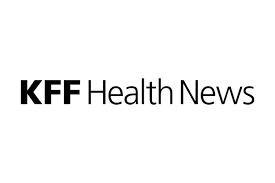
When it comes to treating chronic pain—or pain associated with surgery—clinicians are always looking for alternatives to opioids. “There are zero advantages to chronic opioid use,” says Earl Kilbride, MD, MHA, an orthopedic surgeon at the Austin Orthopedic Institute. While the US makes up about 4.4% of the global population,…

Editor's Note Deaths from falls among Americans over 65 have more than tripled in the past 3 decades, raising alarm among geriatric experts and fueling debate about the role of prescription drugs, HealthLeaders September 15 reports. The Centers for Disease Control and Prevention (CDC) recorded more than 41,000 fall-related deaths…

Editor's Note The UC Davis Department of Orthopaedic Surgery has received more than $2.2 million in Department of Defense funding for two research projects addressing bone health in prostate cancer and preventing arthritis after joint injuries, a UC Davis Health July 15 news release reports. The larger grant, $1.8 million,…

Editor's Note The US Food and Drug Administration (FDA) is requiring safety labeling changes for all opioid pain medications to better emphasize and explain the risks associated with long-term use, according to a July 31 announcement. These changes follow a May advisory committee meeting where the agency reviewed data on…

For an ambulatory surgery center (ASC), earning accreditation can be more than a mark of excellence. The Accreditation Association for Ambulatory Health Care (AAAHC) offers Medicare Deemed Status Accreditation, eliminating the need for separate surveys to certify compliance with the Conditions of Participation (CoPs) required by the Centers for Medicare…

Editor's Note Research shows using GLP-1 receptor agonists both before and after bariatric surgery is associated with greater total weight loss than surgery alone, according to a July 13 article in MedPage Today. The article focuses on a retrospective analysis of 568 patients presented at ENDO 2025, the annual meeting…

Editor's Note Although for-profit rehab hospitals have become highly profitable, a recent KFF Health News report highlights serious safety violations, including patient deaths due to carbon monoxide poisoning, medication errors, and falls. Published July 15, the article delves into recent data and inspections of these facilities, particularly those run by…

Editor's Note Providing tailored feedback to surgical prescribers significantly increased adherence to opioid prescribing guidelines without affecting patients’ ability to manage postoperative pain, according to research published June 11 in JAMA Surgery. The study tested whether monthly reports that included peer prescribing comparisons and patient-reported outcomes could influence opioid prescribing…

Editor's Note Logistical staff layoffs at the US Food and Drug Administration (FDA) are hindering the agency’s ability to scrutinize drug manufacturing safety in foreign countries, according to a July 7 report in ProPublica. A spokesperson from the US Department of Health and Human Services (HHS) told ProPublica that FDA…

Editor's Note Hospitals spent nearly $900 million in labor last year managing drug shortages, dedicating over 20 million hours to activities such as sourcing alternatives, updating systems, and communicating with care teams, according to a new Vizient survey published June 17. Conducted in late 2023 and detailed in Vizient’s June…